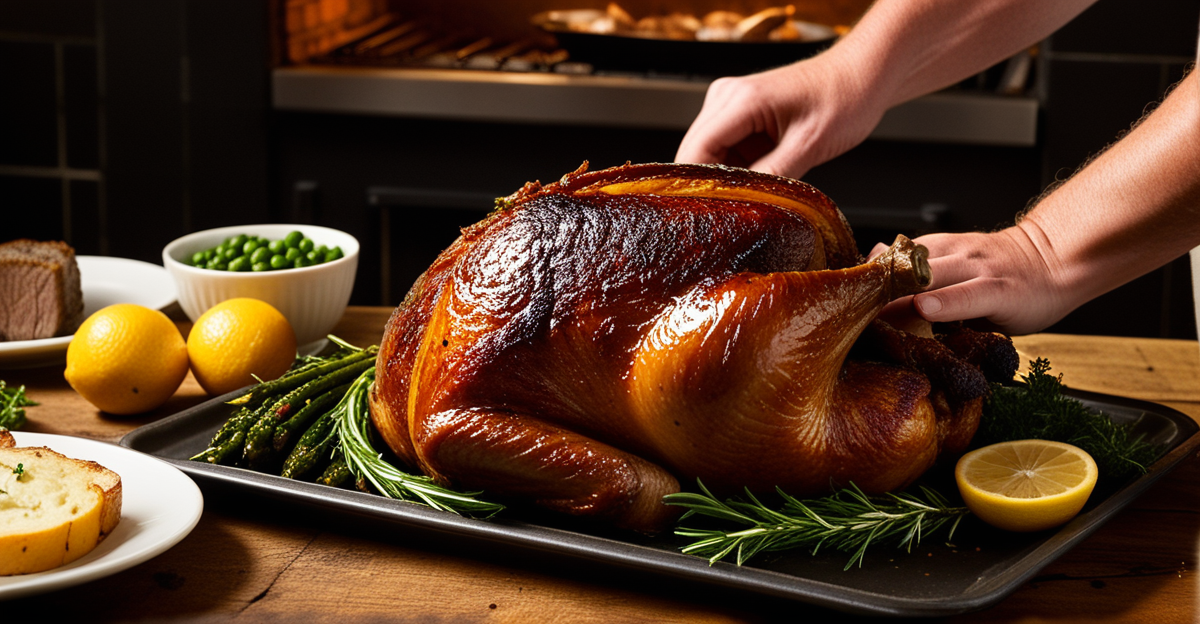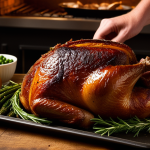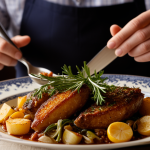Essential steps for preparing a traditional Sunday roast
A successful Sunday roast preparation begins with selecting the best cut of meat, which is the cornerstone of any traditional roast essentials. Popular choices include beef joint, whole chicken, leg of lamb, and pork shoulder, each offering unique flavours and textures. The choice should reflect the number of diners and desired cooking time.
Next, assembling a Sunday lunch checklist is crucial. Key ingredients such as fresh herbs, root vegetables, potatoes, and proper seasonings create the foundation for a complete meal. Essential equipment includes a sturdy roasting pan, meat thermometer, and ovenproof dish for accompaniments.
Topic to read : How Can You Add a British Twist to Classic Dishes?
Careful planning of cooking times for all components is necessary to coordinate a harmonious meal. For instance, larger cuts like beef or lamb require longer roasting than chicken or pork. Understanding these timings allows you to stagger preparation so everything finishes perfectly. This step ensures vegetables crisp up, meats rest for juiciness, and accompaniments stay warm.
Mastering these foundational steps results in a well-executed Sunday roast, showcasing the best of traditional roast essentials with ease and confidence.
Also to discover : How can you recreate the flavors of a traditional British Sunday roast?
Essential steps for preparing a traditional Sunday roast
Preparing a traditional Sunday roast hinges on thoughtful planning that combines the best cut, reliable ingredients, and precise kitchen organisation. When selecting meat for your Sunday roast preparation, consider cuts known for tenderness and flavour. Beef joints like rib or sirloin offer rich taste, while whole chickens provide versatility. Lamb leg or shoulder brings robust depth, and pork shoulder delivers moist, succulent meat—each suited to different cooking times.
A comprehensive Sunday lunch checklist should include fresh root vegetables such as carrots and parsnips, aromatic herbs like rosemary and thyme, and staples like potatoes for roasting. Essential equipment mustn’t be overlooked: a sturdy roasting pan ensures even heat distribution, while a meat thermometer guarantees perfectly cooked meat by accurately measuring internal temperature. Ovenproof dishes are vital for side preparations.
Timing is critical. Larger cuts require slow roasting over longer periods, while smaller meats roast quicker. Stagger your cooking schedule to ensure everything finishes simultaneously. For instance, roast potatoes need a different oven time than vegetables or meat. Planning cooking times carefully brings all elements together, creating a harmonious blend of texture and flavour that defines traditional roast essentials.
Essential steps for preparing a traditional Sunday roast
Careful Sunday roast preparation begins with selecting the best cut of meat, which forms the core of traditional roast essentials. Choose from cuts like beef rib or sirloin, whole chicken, lamb leg, or pork shoulder, considering the desired texture and cooking duration. Matching meat types with appropriate cooking times is crucial to achieving tenderness and flavour.
A detailed Sunday lunch checklist covers essential ingredients such as fresh root vegetables, aromatic herbs like rosemary and thyme, and staple potatoes ideal for roasting. Equally important is gathering reliable cooking equipment. A robust roasting pan, calibrated meat thermometer, and ovenproof dishes help ensure accuracy and consistency throughout preparation.
Timing is key. Plan cooking schedules to accommodate different roasting durations, staggering larger cuts with quicker-roasting vegetables and sides. For example, roast potatoes require more oven time than seasonal vegetables. This strategic coordination allows all components to finish simultaneously, maintaining optimal temperature and texture. Thorough preparation with these traditional roast essentials guarantees a balanced and satisfying Sunday roast experience every time.
Essential steps for preparing a traditional Sunday roast
Selecting the best cut of meat is fundamental to successful Sunday roast preparation. Choose from beef joints like rib or sirloin for rich flavour, whole chickens for versatile meals, lamb leg or shoulder for robust taste, and pork shoulder for tender, moist results. Each cut requires different cooking times and methods, so planning around these specifics ensures optimal texture and juiciness.
Your Sunday lunch checklist should include fresh root vegetables such as carrots, parsnips, and potatoes, which are staples in traditional roast essentials. Aromatic herbs like rosemary and thyme enhance flavour profiles. Essential cooking equipment includes a sturdy roasting pan for even heat, a calibrated meat thermometer to monitor doneness accurately, and ovenproof dishes for side preparations. These tools streamline cooking and improve consistency.
Carefully plan cooking times to coordinate all meal components. Larger cuts like lamb or beef need slow roasting, while vegetables require less time and higher heat for crispness. Stagger cooking schedules so roast potatoes and meat finish concurrently without compromising texture. This strategic timing ensures your Sunday roast presents a harmonious balance of flavours and temperatures, elevating the entire dining experience.
Essential steps for preparing a traditional Sunday roast
Selecting the best cut of meat is a critical first step in Sunday roast preparation. Opt for cuts like beef rib, whole chicken, lamb leg, or pork shoulder, each suited to different cooking times and textures. This choice directly impacts tenderness and flavour, which are the heart of traditional roast essentials.
Your Sunday lunch checklist should include fresh root vegetables such as carrots and parsnips, aromatic herbs like rosemary, and staple potatoes for roasting. Reliable equipment is equally important: a sturdy roasting pan ensures even cooking, a calibrated meat thermometer helps achieve perfect doneness, and ovenproof dishes aid in preparing side dishes. These tools simplify cooking and improve consistency.
Planning cooking times carefully is essential to synchronize all components of the meal. Larger meats require slow, prolonged roasting, while vegetables and potatoes roast faster at higher temperatures. Stagger the cooking schedule so everything finishes simultaneously—roast potatoes, vegetables, and meat all at their ideal textures and temperatures. This coordination is key to creating a balanced, satisfying Sunday roast experience.




